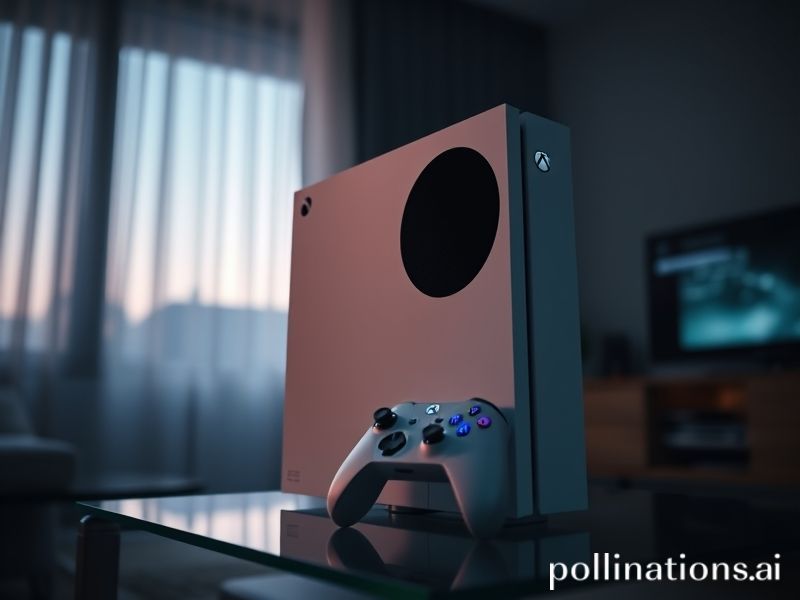Xbox Series S: How Microsoft’s Tiny Console Became the World’s Favorite Escape Hatch
**The Xbox Series S: A Tiny Console for a World That Prefers Its Escapism Bite-Sized**
In a world where democracy is increasingly optional and climate change is the ultimate unpaid subscription service, Microsoft has delivered the perfect metaphor for our collective resignation: the Xbox Series S—a console so small it fits neatly between your dwindling hopes and your remaining shelf space.
Released globally in November 2020, this diminutive gaming machine has become the people’s champion of the ninth console generation, proving that size doesn’t matter when you’re trying to forget that everything costs more than your monthly rent. While its bigger sibling, the Xbox Series X, flexes its technological muscles like a Silicon Valley billionaire at a TED talk, the Series S has quietly conquered living rooms from Lagos to Lisbon, offering 1440p gaming at a price point that won’t require selling a kidney on the dark web.
The international success story reads like a capitalist fairy tale. In developing nations where the average monthly salary couldn’t buy a graphics card, the Series S emerged as the democratic choice for digital escapism. Brazilian gamers, facing import taxes that could fund a small nation’s space program, embraced the console like a long-lost relative. Indian consumers, caught between Bollywood’s eternal optimism and the crushing reality of infrastructure, found solace in a device that promised worlds where the traffic actually moves.
Microsoft’s genius lay not in creating the most powerful machine, but in recognizing that in our glorious age of permanent crisis, people want their denial affordable and compact. The Series S delivers gaming’s greatest hits—explosions, car chases, and the eternal fantasy of being someone else somewhere else—without the premium pricing that might force consumers to choose between virtual worlds and actual food.
The console’s digital-only approach mirrors our transition to a society where ownership is as outdated as privacy. Physical media collects dust like the concept of job security, while gamers worldwide embrace the convenience of downloading titles faster than governments can ban them. In China, where gaming restrictions flip-flop more than a politician’s promises, the Series S serves as the perfect gray-market companion—small enough to hide when authorities come knocking, powerful enough to mine cryptocurrency between Overwatch matches.
From the neon-lit gaming cafés of Seoul to the cramped apartments of Mexico City, the Series S has become the great equalizer—a $300 ticket to worlds where your problems involve dragons rather than inflation, where your biggest worry is ammo count rather than body count, where you can respawn after death instead of, well, actually dying.
The environmental implications haven’t escaped notice either. This tiny terror consumes less power than a cryptocurrency mining rig or a billionaire’s ego, making it the eco-conscious choice for destroying virtual environments. It’s comfort gaming for the climate anxiety generation—because why worry about rising sea levels when you can explore underwater cities from your couch?
As we stumble through what historians will generously call “the interesting times,” the Xbox Series S stands as perhaps the most honest product of our era: a small, affordable box that lets us pretend we’re somewhere else, someone else, in worlds where the good guys usually win and problems can be solved by pressing the right buttons. In that light, $299 seems like a reasonable price for temporary sanity, even if the graphics occasionally stutter like a politician explaining their tax returns.
The global village has spoken, and it wants its escapism compact, affordable, and readily available—just like everything else we can’t have in the real world.







